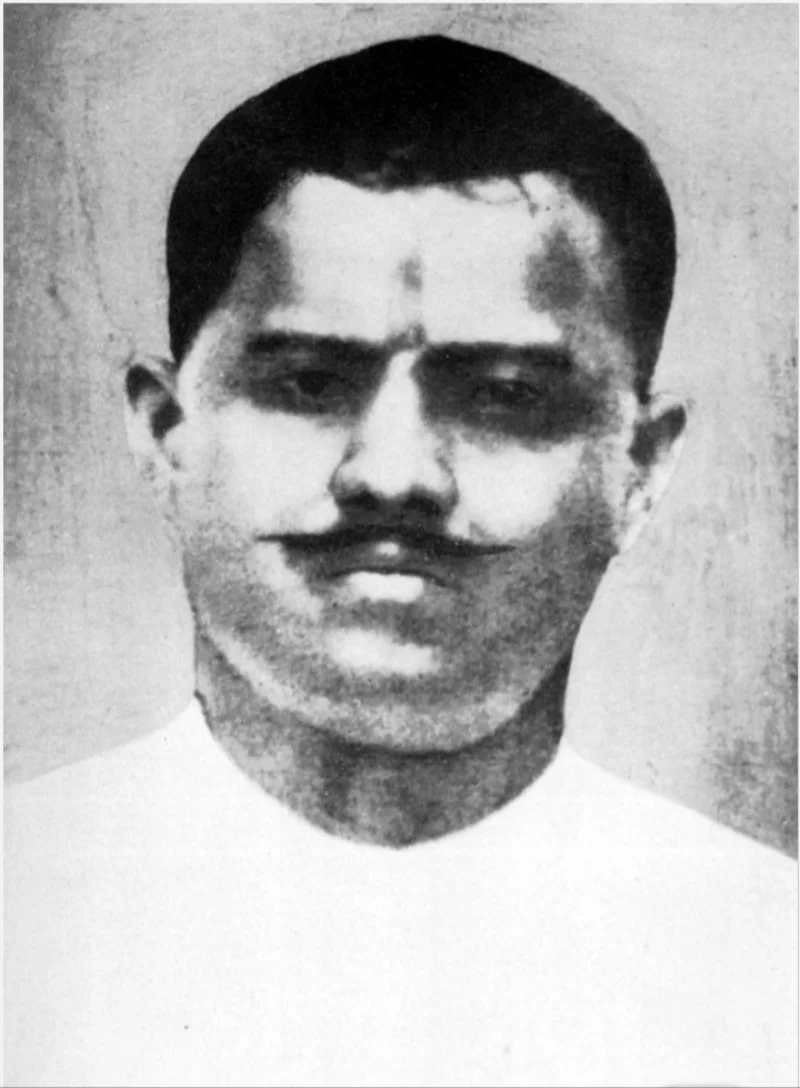Short Summary
Ram Prasad Bismil was a prominent Indian revolutionary known for his significant role in the Indian independence movement against British colonial rule. He was a key figure in the Kakori conspiracy of 1925, which was a pivotal event in the struggle for Indian independence. Bismil was also a talented poet and writer, using his literary skills to inspire patriotism among his countrymen. His dedication to the cause of freedom and his ultimate sacrifice made him a symbol of resistance and courage.
Early Life & Education
Ram Prasad Bismil was born on June 11, 1897, in Shahjahanpur, Uttar Pradesh, India, into a Brahmin family. His father, Murlidhar, was a well-respected citizen, and his mother, Moolmati, played a significant role in shaping his early values. Bismil showed an early interest in literature and poetry, with a particular inclination towards patriotic themes. He was educated at home and later attended a local school. Influenced by the prevailing political climate and the stories of valor from Indian history, he developed a keen sense of nationalism from a young age, which set the foundation for his revolutionary activities.
Career Highlights
Bismil’s revolutionary career was marked by his involvement in the Hindustan Republican Association (HRA), which aimed to overthrow British rule through armed struggle. His most notable contribution was the planning and execution of the Kakori train robbery in 1925, where he and his associates aimed to fund their activities by seizing government money. This bold act drew significant attention and highlighted the growing unrest among Indians against colonial rule. Bismil was also a prolific writer, using his poetry to advocate for independence and ignite the spirit of resistance among the masses.
Major Achievements
- The Kakori Conspiracy: A pivotal event that highlighted the revolutionary zeal against British rule.
- Founding Member of HRA: Played a key role in establishing a revolutionary group dedicated to India's independence.
- Prolific Poet: Used poetry to inspire and mobilize the Indian populace towards the freedom struggle.
Famous Quotes
- "Sarfaroshi ki tamanna ab hamare dil mein hai."
- "Mera rang de basanti chola, maaye rang de."
Interesting Facts
- Bismil adopted several pseudonyms, including Agyat and Ram.
- He was a self-taught poet who wrote in both Hindi and Urdu.
- Bismil was executed on December 19, 1927, at the age of 30.
- His last poem, "Mera Rang De Basanti Chola," became an anthem for revolutionaries.
- He was inspired by the freedom fighter Swami Somdev.
Legacy / Influence
Bismil's legacy as a fearless revolutionary continues to resonate in India. His dedication to the cause of freedom and his literary contributions have inspired generations. The ideals he embodied and the sacrifices he made have left a lasting impact on India's cultural and political landscape, continuing to inspire the pursuit of justice and freedom worldwide.
FAQ
Q: Why is Ram Prasad Bismil famous?
A: He is famous for his role in the Indian independence movement and the Kakori conspiracy.
Q: What was the Kakori conspiracy?
A: It was a train robbery planned by Bismil and his associates to fund revolutionary activities.
Q: What were Bismil's contributions to literature?
A: He was a poet who used his writings to inspire patriotism and resistance against British rule.
Q: When was Bismil executed?
A: He was executed on December 19, 1927.








